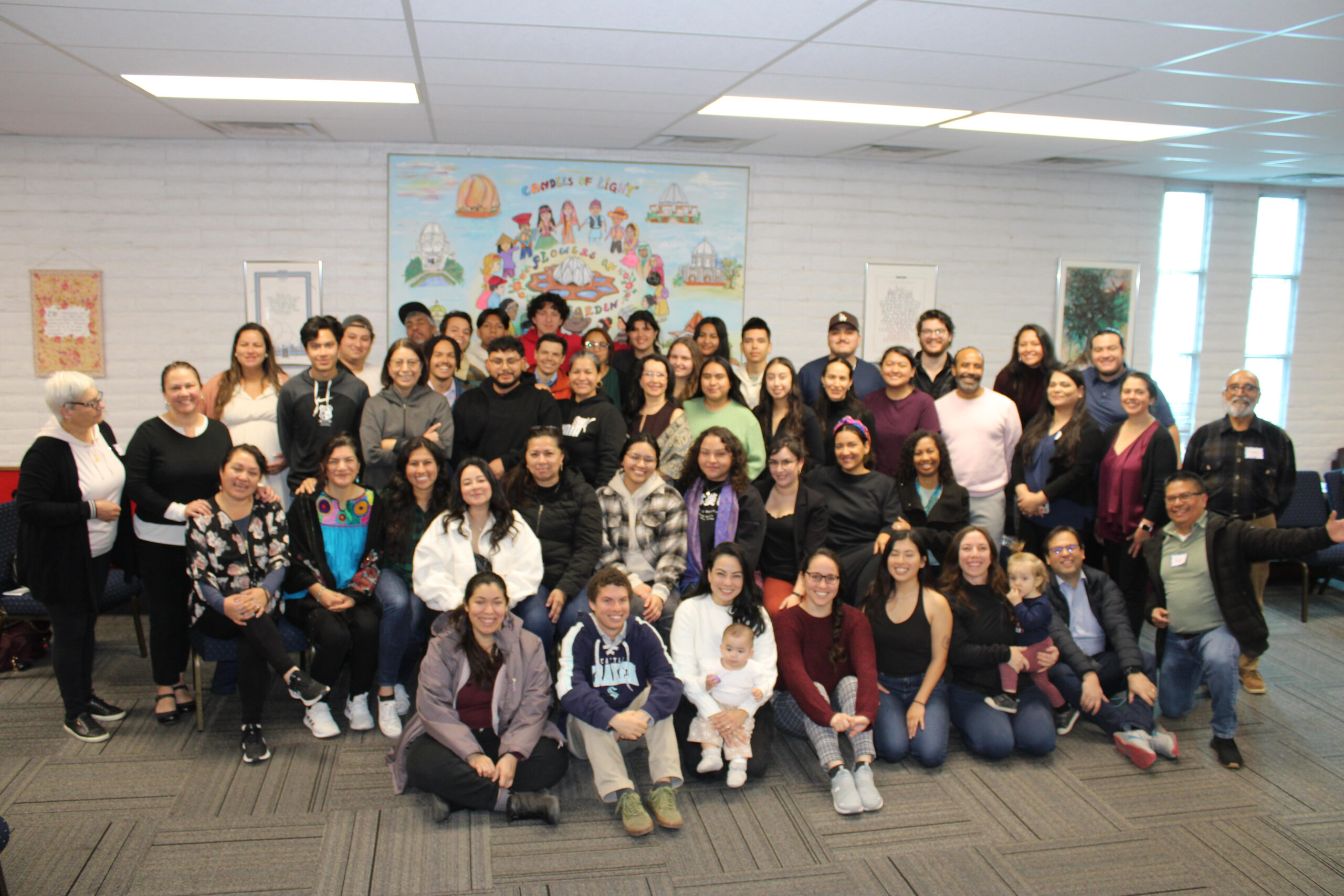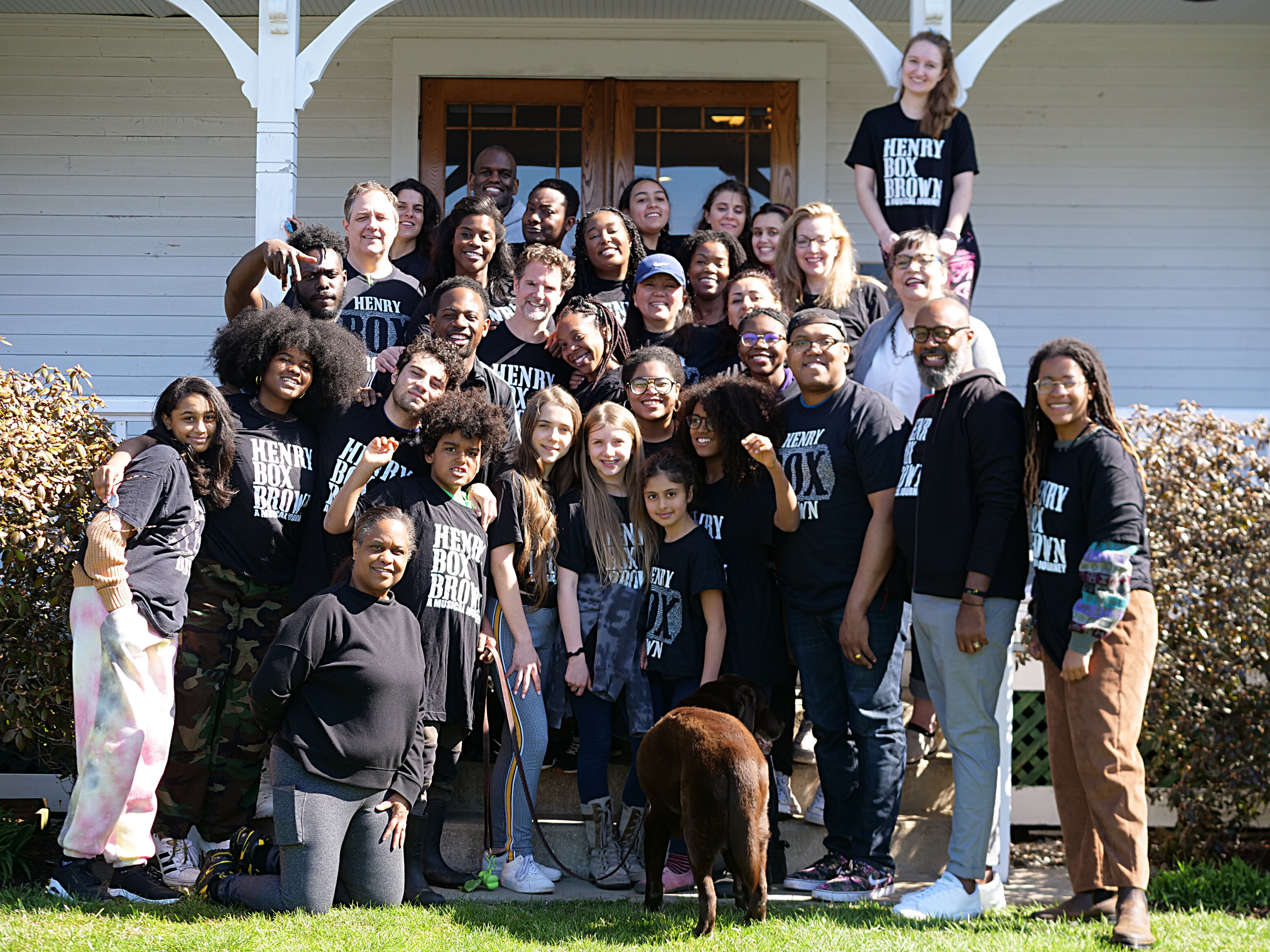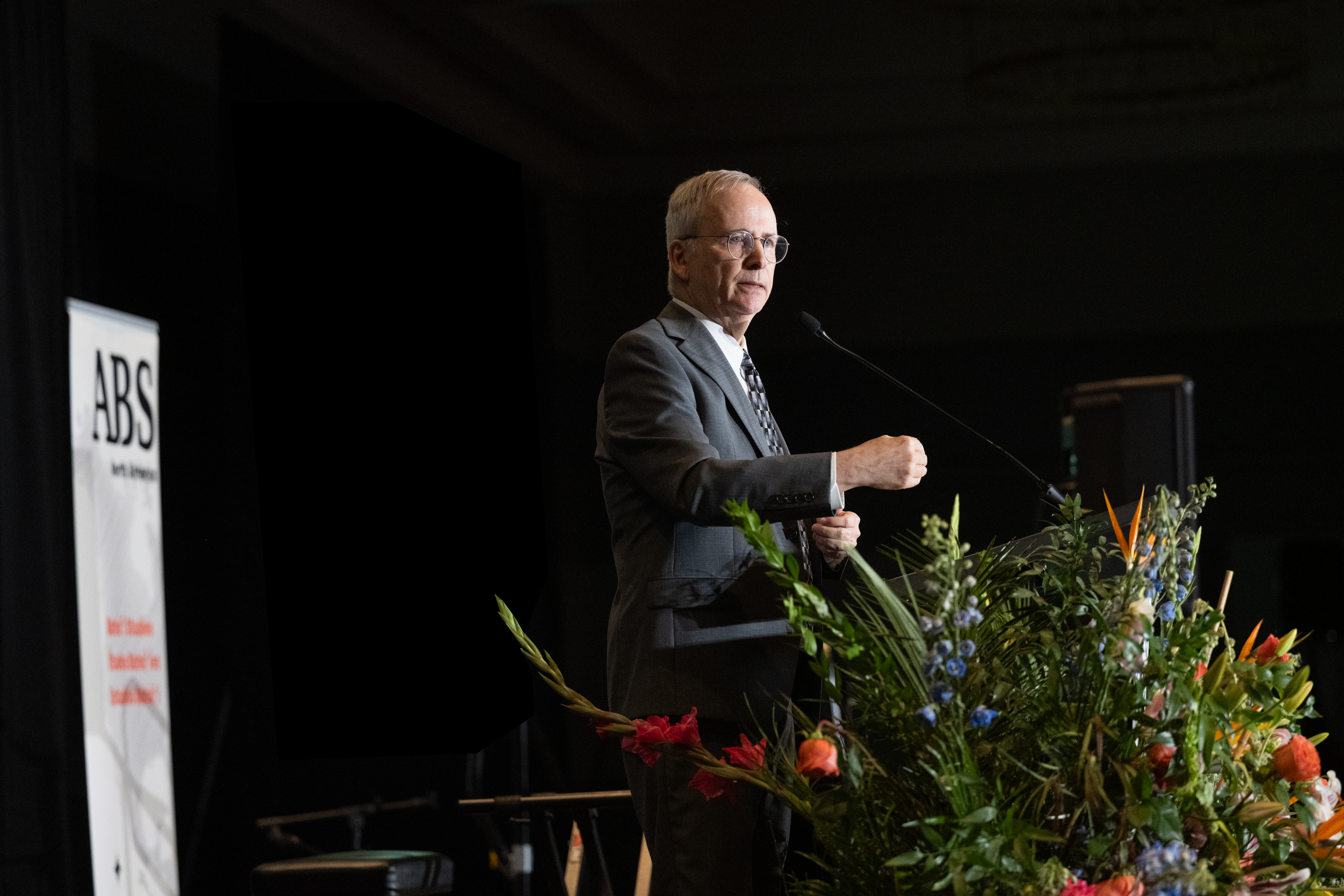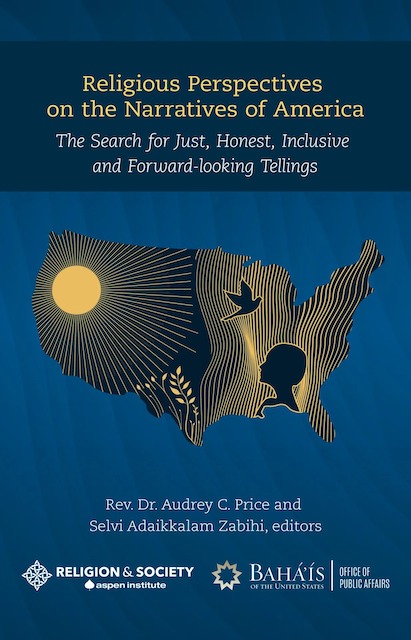
Spanish-speaking tutors build vision, purpose In New Mexico

Spanish-speaking tutors recently gathered to raise their voices in prayer, embrace their cultural heritage, consult on their roles in building a new society and celebrate joyfully with singing, artistic displays and dance.
The meeting was conducted entirely in Spanish at the Albuquerque Bahá’í Center in New Mexico on Feb. 18–20, with tutors from throughout the country invited to participate.
“I feel so blessed to have been a part of such an amazing and momentous gathering,” says Maria Khaleghi of Brownsville, Texas. “The message shared with us, and that I have taken to heart, is that we as Latinos have an opportunity, through teaching the Faith, to lift the Latin American people in this country. We have this opportunity because of our shared Latino background and we know the Spanish language.”
Before the meeting, Khaleghi says, she assumed there were better Spanish speakers who were teaching Latinos in the U.S. But especially in light of recent experience tutoring Book 1 in Spanish, the gathering showed her that she is just as capable a resource as any, and that the onus was on her and her friends to act now.
“As one of the friends said, ‘Hay que ir con valentía a tocar puertas’ [Let us go with bravery to knock on doors] and share Bahá’u’lláh’s message with our Latin American communities so that they may begin the process of transforming their communities through their participation in community building activities and the Institute,” Khaleghi said.
The concept of the pioneering spirit, one theme of the gathering, was introduced in a video that theatrically recounted the inspirational stories of three women who pioneered to South America in the early days of the Faith. These women didn’t know the culture or speak the language, and had little money to subsist on. Participants said it was “truly humbling and awe-inspiring” to learn how they sacrificed and overcame those obstacles. It is with this same spirit that the tutors at the gathering were called to see themselves as “el pionero” in the communities where they serve.
Study materials framed the work of “el pionero” as a labor of generations. The first participants in the institute are the “first generation,” and many of them advance to become the tutors of the “second generation.” Today, many communities are learning about a third generation as the culture gradually embraces the teachings of Bahá’u’lláh.
As an example of this generational work, the tutors learned the story of Abraham Bonilla, one of the first people to accept Bahá’u’lláh’s message in the Norte del Cauca area in Colombia. Instantly falling in love with the Faith, Bonilla exemplified this spirit of “el pionero” as he dedicated his life to sharing Bahá’u’lláh’s message with everyone with such passion that entire communities embraced the Faith.
This story demonstrated how the door is opened for transformation of communities when the friends find protagonists who become dedicated to the institute and the community-building activities, and who act energetically in communities where they know everyone and everyone knows them.
Many tutors at the Albuquerque gathering have been working persistently in their own neighborhoods for several years. Young people, at the forefront of the consultations, shared stories of the transformative power of the Faith (see story in box).
During the course of consultations, certain patterns and themes emerged. One key idea was the importance of steadfastness and patience in building community and recognition that this is an ongoing process that takes time.
Along with the Institute, the importance of working in teams was a principal topic of learning and consultation. Some friends expressed that it is no longer necessary to draw a distinction between who is or isn’t a Bahá’í when everyone is working together to bring about a spiritual transformation in themselves and their communities through enduring friendships and the willingness to share and rely upon the Word of God.
Other key themes were:
- Every person has a role to play, and each role is valued.
- It is important that every person sees themselves in the process.
- All can exercise the courage to visit and invite friends to participate in core activities and the institute.
It was observed that many of the qualities promoted by the institute—which originated in Colombia—are qualities deeply rooted in Latin American culture, such as humility, having a strong belief in and reliance upon God, demonstrating loving-kindness to all, placing strong emphasis on the importance of family life, and a willingness to “acompañar” friends and family members in various endeavors.
Shoghi Effendi, they noted, addressed the Bahá’ís of Latin America as associates of the Divine Plan, even as ‘Abdu’l-Bahá had initially revealed it to North America. Now as the institute process is used all over the world to build community and raise capacity and human resources, it serves as an inspiration for all those who are working to make the world a better place. The realization grew: rather than being marginalized, cast aside or made to feel “less than,” souls that come into contact with the teachings of the Bahá’í Faith become empowered to embrace the nobility of their true selves as well as their own culture. Through the institute process, they are seeing neighborhoods, villages and communities transformed.
“Some other community-organizer friends have called our neighborhood’s process organic and slow, some call it chaotic, detached and beautiful. I picture the movement of a massive animal, slow and determined, or that of a murmuration of birds swirling like a dark cloud in the sky,” participant Marisa Mata reflects. “While we know the community does have a Plan and a leader, I think it’s similar to the unknowable plan these birds have, and if you want to put it into a few words, you have to get creative with language.”
The gathering was held concurrently with a meeting with Auxiliary Board members from the California, Four Corners, Northern Plains and South Central regions. The two groups gathered together for loving and joyful devotions and for meals. Getting acquainted with each other on those shared occasions, they learned about their respective communities and consulted on the Nine Year Plan.





